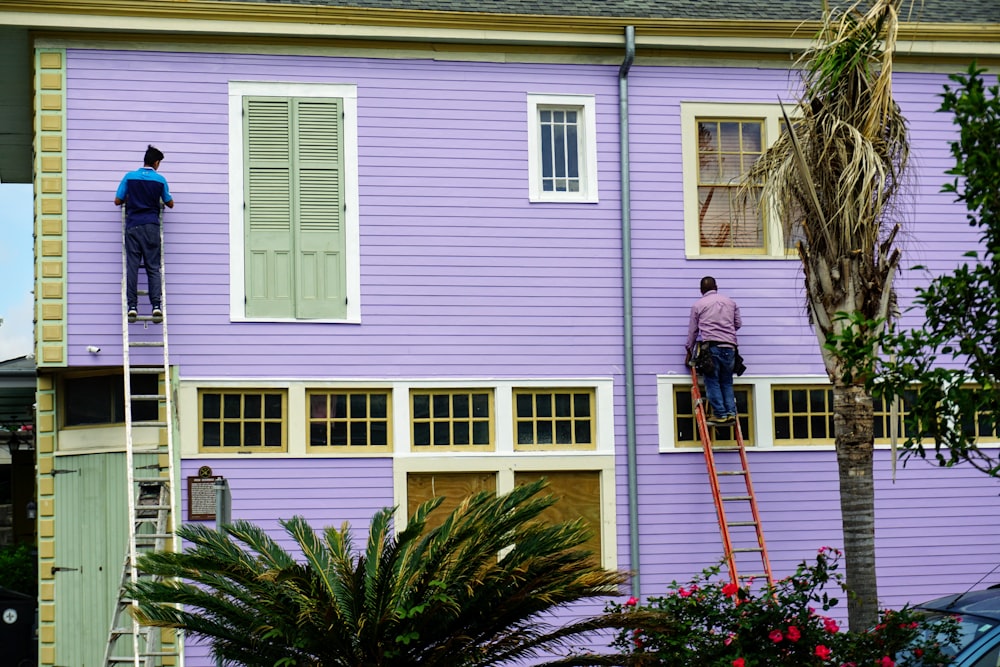If you’re interested in purchasing rental properties, you’ll want to make sure you do your research first. When purchasing rental properties, there are many things to consider that can either make or break the deal. The following list will help guide you through some of the significant points of interest on how to buy a rental property:
What Are Real Estate Rental Properties?
A rental property is a property you rent out to tenants or someone else. You can either sell the property in the future or continue renting it out, depending on what type of first rental property you have. The most common types are:
- Residential Real Estate: These are homes like single-family houses and apartments, usually located within a residential area. It can also be used as a primary residence.
- Commercial Real Estate: These are commercial buildings like offices, retail stores, and warehouses that may or may not be part of an office park.
- Multi-Family Homes: These include duplexes, triplexes, fourplexes, and more.
- Vacation Homes: These are homes, cabins, and condos located in tourist areas like beaches, mountains, or ski resorts.
Benefits Of Buying A Rental Property As An Investment Property
There are a lot of benefits to owning your own rental property. You can use the rental income to pay the monthly mortgage payment and all expenses associated with owning a home: property taxes, insurance, and maintenance costs.
The downside is that there may be times when ownership costs exceed what you would have been able to make. That said, let’s focus on the pros of having rental property as real estate investments.
Rental Income Is Passive Income
Passive income is not only a benefit of buying your first rental property. It’s one of the main reasons a real estate investor chooses to purchase real estate. The money you make from your real estate rental property is called passive income because you don’t have to work for it.
You earn rental income from your tenants without having to be on-site or even pick up the phone. This allows you to pursue other interests while continuing to collect checks from your investment properties each month.
Real Estate Rental Property Can Be Sold Anytime
One of the most significant benefits of real estate rental property is that it can be sold anytime you want. Rental property owners have no restrictions on when or to whom you can sell your rental home. So you won’t be stuck with a property after making an unwise purchase decision.
For example, if you buy directly from real estate investors and decide they don’t want to rent out their house anymore. Then they’re under no obligation to keep renting them out if they don’t want to, and neither are you.
Tax Benefits
One benefit not to overlook is the tax benefits of owning your first rental property. The government allows rental property owners to deduct certain expenses from their taxes when they own a rental property.
This is essentially money you don’t have to pay in taxes at the end of each year. Buying rental properties means you may avoid paying thousands of dollars in taxes yearly.

You Can Use Real Estate Rental Property As A Vacation Home
Another benefit of purchasing your first rental property is that you can use it as a vacation home, second home, or primary residence. If you want, you can also learn How to Start an Airbnb if you’re going to list your first rental property online.
A rental property can also be a retirement property. If you plan on moving out of state or out of the country, buying your first rental property may be the perfect opportunity to invest in your future without paying rent.
How To Buy Your First Rental Property
Getting started in real estate without being a landlord is possible, but it does take some financial know-how. Here’s how to buy your first rental property, whether you want to rent out your own home or invest in another piece of property:
1. You Must Understand Your End Goal
Buying your first rental property can be daunting, but the most important thing to remember is that you have to know what you want from this investment. What do you want to achieve? What is your end goal?
Some real estate investors only want to buy a property for investment purposes, while others might also be looking at it as a place they could retire. Whatever your personal reasons are for real estate investing, many things go into finding the perfect home that best fits your needs.
2. Prepare To Be A Landlord
When buying a rental property, you must know to have a lot of responsibility. As a landlord, you are responsible for the home’s upkeep, ensuring everything is maintained and safe.
You can’t just ignore these responsibilities because they won’t go away alone. They will continue to be an issue until they’re fixed by someone, and most likely, it will be up to you as the landlord to fix them.
If there are any problems with the house, like mold or plumbing issues, then those must be addressed before new tenants move in. If anything gets broken or damaged during their stay, that also needs repairing.
The same goes for cleaning; if someone leaves trash behind or messes up some part of the house. These tasks also fall under your job description.
3. Use The Help Of A Real Estate Agent
Hiring a trusted real estate agent is essential when buying your first rental property. The agent can help you find the best investment property for your needs, increasing your chances of making rental income.
In addition, they can help you Negotiate House Price considering your budget. When looking for an excellent real estate agent, ensure they have experience buying and selling a good rental property.
An advantage of working with such an agent is they can provide valuable advice on finding the right rental property for your needs and buying it at the right price. You should also check that the agent knows where you want to buy your first rental property. This way, they can give you information on rent prices, real estate market trends, and other factors that might affect its value over time.

4. You Must Save For A Down Payment
Another important thing on how to buy a rental property is the down payment. Saving for a down payment is integral to buying your first rental property. You will need to save a down payment of at least 20% of the property’s total cost, usually with money you set aside over time.
When saving for a down payment on your first real estate investment, it’s vital to ensure that you do so correctly. Many rental property owners think dedicating just one month’s rent is enough, but this isn’t true. Instead, you should aim for between 5% and 20% of the total price tag. This all depends on how much positive monthly cash flow you expect from your investment.
5. Understand The Real Estate Rental Property Expenses
When purchasing your first rental property, you must understand the operating expenses involved. Even though your monthly mortgage payments will be lower than a traditional primary residence. There are still costs to consider beyond just paying off your mortgage payments. Here are some of the operating expenses that you need to budget:
- Property Taxes: One of the most significant expenses you will face as a landlord. Your property taxes are based on the value of your home. They can vary significantly from year to year, depending on home values.
- Property Insurance: This is required for lenders to approve financing on homes in certain areas. Also, it can be expensive if not covered by an existing policy like homeowners or landlord insurance.
- Maintenance Costs: These vary depending on how well-maintained the property was before purchasing. And whether there were any significant repairs needed upon acquisition.
- Property Management Fees: This is the cost of managing your property by a property manager. This includes paying the property management company to handle tenant relations and maintenance.
6. You Need To Get Pre Approval For A Mortgage
When buying your first rental real estate property, you must get pre-approval for a mortgage. You may have heard that you can just go out and start looking for properties without getting pre-approved, but this is not true.
If you don’t get pre-approved, you won’t be able to buy the property. This is because no lender will give you a rental property loan if they don’t know if it will be paid back.
Of course, when it comes to real estate investing, there are two types of loans: fixed rate mortgages and variable rate mortgages. Your goal should be to get a fixed-rate mortgage, so the interest rates on your loan don’t change over time.
7. You Need To Research The Real Estate Market
Knowing the real estate market of your area is a crucial step in how to buy a rental property. You can’t just buy any old rental property and expect it to be profitable. You need to do some research first to know exactly what to look for when purchasing your first rental property.
You will want to research how many other properties are renting. This will help you determine whether or not the price is fair based on what the competition charges per monthly rent. You also want to find out if there are any real estate market trends in which properties are more popular with renters.
8. Choose The Right Location
Location plays a vital role in the success of any real estate investment. Choosing an area with potential for growth and appreciation is essential. The site also impacts other aspects of real estate investing, such as property value and annual rental income.
In addition, location can affect property tax rates and insurance premiums. And suppose you decide to manage your property. In that case, it’s essential to know the challenges associated with managing properties in different desirable locations.
9. Consider Hiring Property Managers
When you’re new to the game of real estate investors, it’s easy to get overwhelmed between learning about maintenance and repairs, collecting rent, filing taxes, and more. This is where employing property managers can help you out big time.
These property managers will help you with all the tasks related to managing your rental properties. This includes finding tenants, screening applicants, collecting rent, and ensuring maintenance is done on time.
A property manager also handles any legal issues like evictions. And since they’ll check in on your units regularly throughout the year. Then a property manager can spot potential problems that may lead to lost rental income.
10. Hire A Real Estate Rental Property Inspector
Aside from a property manager, hiring a real estate rental property inspector is essential in the buying process. The inspector will examine the property for any damage or defects, check for code violations, and study the property for safety issues.
Your first rental property inspector will also ensure that all systems are functioning correctly. This includes heating, air conditioning, and plumbing.
11. You Need To Analyze The Cash Flow Projections
In rental property investment, to be profitable, you need to analyze the cash flow projections before buying. Cash flow is the difference between a rental property’s rental income and operating expenses.
The main goal of real estate investors is to make a rental income while they invest in their profits. The best way to do this is by analyzing your immediate cash flow projections. You want an investment showing positive cash flow after all operating expenses are taken care of.
If there are too many expenses compared with what you earn from rent. Then real estate investing might not be suitable for you.
12. Get Your First Rental Property An Appraisal
Before you begin purchasing and owning your first real estate investment rental property, you must have the property appraised. This way, you can determine its value so that you know what the purchase price should be.
It will also give you an idea if the home is worth real estate investing in and if any significant issues would make it unsuitable for rental purposes. Finally, an appraisal allows potential buyers to get pre-approved for a mortgage loan on their desired property.
13. Get Homeowners Insurance
Aside from landlord insurance, there is homeowners insurance. You will not be able to buy your first real estate rental property without home insurance.
In fact, you may have to get it before you can even make an offer for a house or apartment you want to buy. Home insurance protects your property and any renters from damage to the building or its contents.
Homeowners insurance varies widely depending on where in the country you live and which company you purchase them through. So while some companies might charge more than others in certain areas. Then there is no way around paying something if this type of coverage is required by your lender.
Conclusion
Obviously, knowing these things to consider when buying your first rental property is essential. Hopefully, this article has given you some insight into those things. Remember that it’s best to keep your emotions out of the decision-making process as much as possible. Use logic, wisdom, and a little research and planning before buying any good investment property.
Fortunately for you, HOMES by ARDOR has a team of trusted real estate agents that will help you navigate all these processes and provide guidance. If you want assistance buying your first rental property investment or have questions about what it takes to be one of the best real estate investors, please contact us today.

In her 25-year career, Steph Wilkinson has been involved in the acquisition, marketing and sales of over $3 Billion dollars of residential real estate. A number of years ago, Steph transitioned into Brokerage Leadership for National real estate brands and tech start-ups. She has served as a Business Strategist for real estate agents and brokerages alike and is also a real estate coach and trainer. In her new role with the Iconic Team, Steph will be responsible for the growth of the team and will be working with all of our agents to increase their productivity and bottom line.







